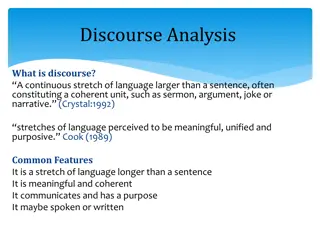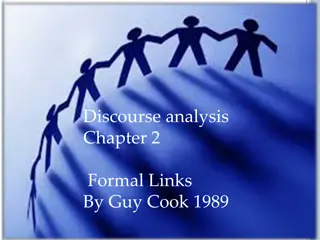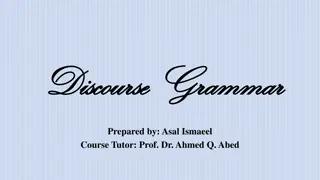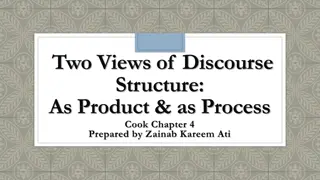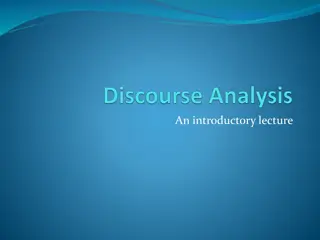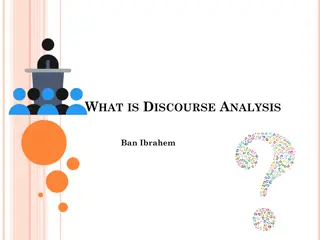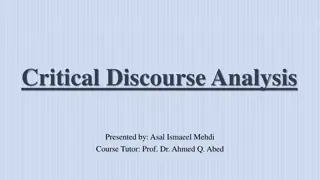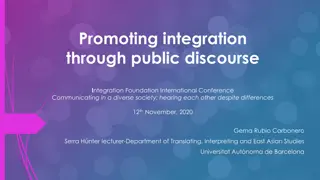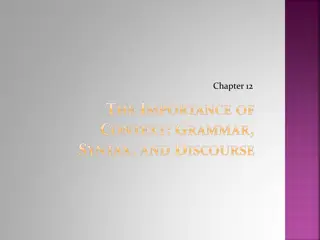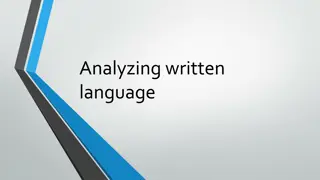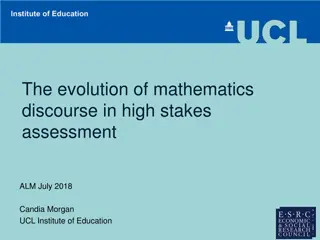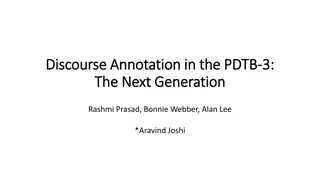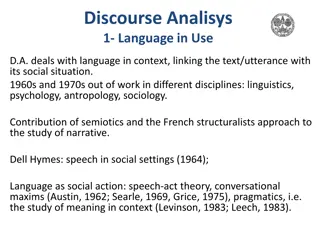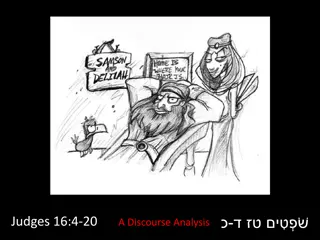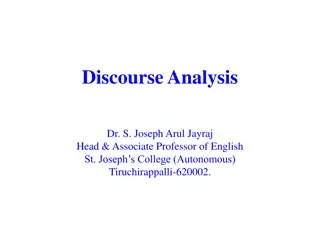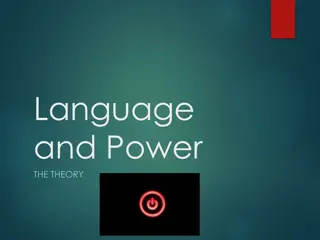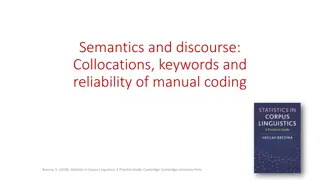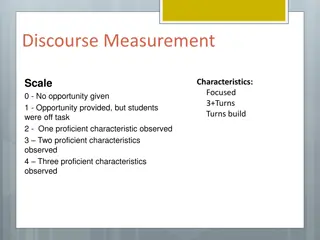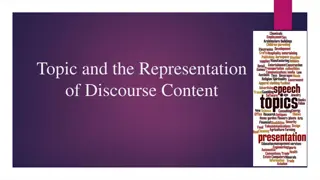Importance of Context in Discourse Analysis
Understanding context is crucial in discourse analysis as it helps interpret the meaning of words based on physical, social, and psychological factors, as well as the temporal and spatial dimensions of communication. Three key types of context include situational, background knowledge, and co-textual contexts, each influencing how words are understood and shared within discourse communities.
Download Presentation

Please find below an Image/Link to download the presentation.
The content on the website is provided AS IS for your information and personal use only. It may not be sold, licensed, or shared on other websites without obtaining consent from the author.If you encounter any issues during the download, it is possible that the publisher has removed the file from their server.
You are allowed to download the files provided on this website for personal or commercial use, subject to the condition that they are used lawfully. All files are the property of their respective owners.
The content on the website is provided AS IS for your information and personal use only. It may not be sold, licensed, or shared on other websites without obtaining consent from the author.
E N D
Presentation Transcript
What is context? Why is it important to discourse analysis? Discourse analysis studies the meaning of words in context. Discourse analysis analyses the parts of meaning that can be explained by knowledge of the physical and social world, and the socio-psychological factors influencing communication, as well as the knowledge of time and place in which words are uttered or written. (Cutting 2002: 2)
Understanding concepts Situational context Background knowledge context Co-textual context
Three types of context: the situational context, what speakers know about what they can see around them the background knowledge context, what they know about each other and the world the co-textual context, what they know about what they have been saying.
The situational context is the immediate physical co- presence, the situation where the interaction is taking place at the moment of speaking. In the excerpt about hill walking in Arran, are there words taking on meaning in the situational context? They were like this. Swollen up like this.
cultural general knowledge that most people carry with them in their minds, about areas of life interpersonal knowledge, specific and possibly private knowledge about the history of the speakers themselves.
Cultural DoAF and DM share any cultural background knowledge? Does the excerpt point out to speakers different attitudes to the cultural context? the community of people discourse communities Interpersonal Shared interpersonal knowledge is knowledge acquired through previous verbal interactions or joint activities and experiences, and it includes privileged personal knowledge about the interlocutor. Does the excerpt contain instances of interpersonal background context?
Reference Referring expressions Referent DM // I went with Francesca and David. AF Uhuh? DM Francesca s room-mate. (2) And Alice s a friend of Alice s from London (1). There were six of us. Yeah we did a lot of hill walking. Exoforic reference vs. endophoric reference
Person deixis I, you, he, she, it, we and they We are not amused. So you went to Arran. Spatial or place deixis there, here, this, that, these, those They were like this. That was great. Time deixis next day, then, now Now look, the picture shows
When a referring item refers to entities in the background knowledge, whether cultural or interpersonal, that have obviously been mentioned in a previous conversation or text, or have occurred in a previous shared situation or activity, we call this intertextuality. That was great!
Brown, G. and G. Yule. (1983). Discourse analysis. Cambridge: Cambridge University Press. Grundy, P. (2000). Doing Pragmatics. London: Edward Arnold. Cruse, A. (2000). Meaning in Language. An Introduction to Semantics and Pragmatics. Oxfrord: Oxford University Press. Cutting, J. (2002). Pragmatics and Discourse. London and New York: Routledge. Mey, J. (1994). Pragmatics: An Introduction. Oxford: Blackwell. Verschueren, J. (1999). Understanding Pragmatics. London: Edward Arnold / New York: Oxford University Press


